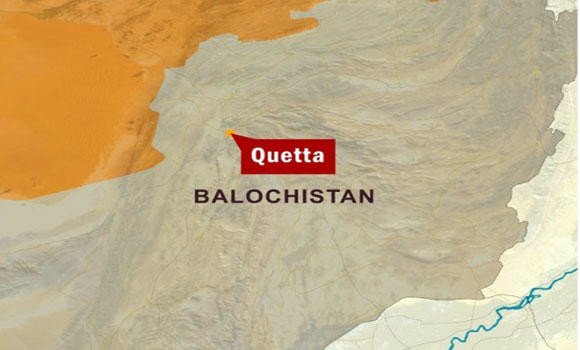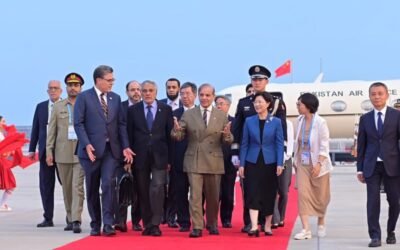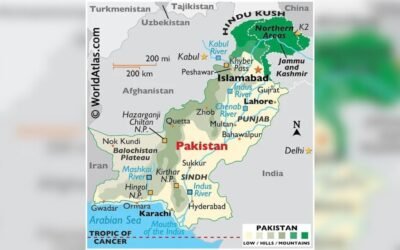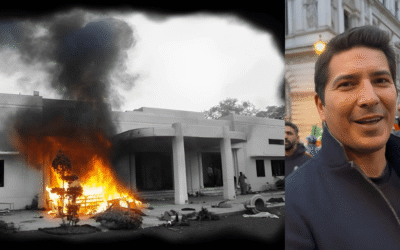Balochistan, Pakistan’s largest province by land, is rich in gas, coal, and minerals. Yet, it’s the poorest province. Many locals feel left out. They want “provincial autonomy”—more control over money, laws, and jobs, with less central government interference. This demand remains a major challenge for Pakistan.
Why Balochistan Demands More Power
Balochistan’s people, mainly the Baloch, feel ignored due to several key issues:
-
Resource Control:
Balochistan produces most of Pakistan’s natural gas and has vast mineral wealth, like the Reko Diq mine. Yet, it receives only a small share of the revenue. It contributes about 80% of Pakistan’s total mineral wealth but gets only a tiny 5% share in the national GDP. The people want more control over these resources and a fairer share of the profits. Locals argue for a fairer share and control over these resources.
-
Economic Unfairness:
Despite its resources, Balochistan has Pakistan’s highest poverty rate—
71.2% of its people live below the poverty line. Many lack jobs, food, good schools, and basic health care. The literacy rate is only 54.5%, much lower than the rest of Pakistan. People feel their natural wealth benefits other parts of the country while they remain poor. They see this as a deep unfairness that fuels their anger and push for autonomy.
-
Political Marginalization:
Balochistan is the largest province by land, covering 44% of Pakistan’s territory. But it has the smallest population, so it gets fewer seats in the national parliament. This means its voice is often not heard enough in big decisions. Baloch leaders feel that decisions about their province are made without them, leading to policies that do not fit local needs.
-
Security Issues and Mistrust:
The government often uses force, which makes people trust it even less. Many Baloch say their loved ones go missing and their rights are ignored. This makes them even angrier and pushes them to demand freedom.
-
CPEC Concerns:
The China-Pakistan Economic Corridor (CPEC) brought major projects like Gwadar Port. Yet many locals feel excluded. They fear outsiders taking jobs and land. Groups like the Balochistan Liberation Army (BLA) are against these projects. They believe the projects only benefit outsiders and are focused more on security than helping local people.
Federal Responses: Steps and Shortcomings
Pakistan’s central government has tried different ways to calm Balochistan’s demands. These range from military actions to offering special packages and giving more power to provinces.
-
The 18th Amendment (2010):
This gave provinces more control by removing the Concurrent List. Balochistan’s federal revenue share rose by 3.8%. The amendment also gave provinces more rights to income from natural gas and oil. This was seen as a way to fix past wrongs and boost democracy.
-
National Finance Commission (NFC) Awards:
These awards decide how money is shared between the federal and provincial governments. The 7th NFC Award, following the 18th Amendment, increased provinces’ share of the tax pool to 57.5%. Balochistan was even guaranteed a minimum of Rs 83 billion in revenues, no matter what the formula said. These financial steps aimed to give Balochistan more resources for its own development.
-
Development Packages:
Various governments have offered special development packages for Balochistan. For example, the Aghaz-e-Haqooq Balochistan package in 2009 aimed to bring peace and create jobs. Recently, the Central Development Working Party (CDWP) approved five development projects worth Rs. 55.164 billion in June 2025. One of these, the “Balochistan Livelihoods and Entrepreneurship Project,” costing over Rs. 12 billion, aims to create jobs in eight districts. Another project, to build a new Balochistan Assembly building, is worth Rs. 9.5 billion was also approved. These efforts aim to show the federal government’s commitment to development.
-
Political Dialogue:
Attempts at dialogue have often failed due to mistrust and unfulfilled promises.
The Unfinished Business
Despite the 18th Amendment and financial awards, many in Balochistan feel their problems are not truly solved. The feeling of being left out remains strong.
-
Implementation Gaps:
While the 18th Amendment gave power to provinces, Balochistan has struggled to use it fully. The province often cannot raise enough money on its own and still relies heavily on federal transfers, which make up nearly 70% of its budget. There are also problems with corruption and not enough local control over how funds are used.
-
Trust Deficit and Separatist Sentiment:
As tensions between India and Pakistan grow, Baloch writer and separatist leader Mir Yar Baloch declared Balochistan’s independence in May 2025. He called on the UN to step in and demanded that Pakistani forces leave the region.
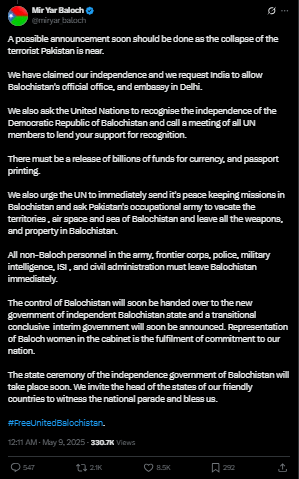
Source: @miryar-baloch/X
In later tweets, he said there should be a Baloch embassy in New Delhi and a temporary government for Balochistan. He also talked about giving Baloch women a role. He mentioned that Balochistan has its own flag, capital city (Quetta), parliament, emblem, anthem, and will allow Indians to obtain visas on arrival.

Source: @miryar-baloch/X
He further tweeted:
“As the Republic of #Balochistan, we welcome nations to engage with us on a diplomatic level…”
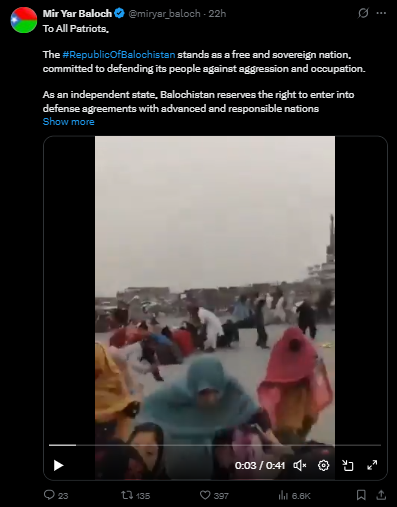
Source: @miryar-baloch/X
On May 9, he wrote:
“Balochistan, since 1948, has been a victim of foreign occupation…”
-
CPEC Grievances:
Many Baloch say CPEC worsens inequalities. They protest job losses and land displacement, sometimes violently.
Complexities Behind the Demands
While Balochistan’s grievances are genuine, some analyses point to deeper factors fueling autonomy demands and insurgency.
External Influence on Insurgency:
Pakistani authorities often claim that foreign elements support the separatist movement. Balochistan’s Chief Minister, Sardar Sarfraz Bugti, directly blamed “state patronage” from Afghanistan in May 2025. Academic research suggests outside states can provide insurgents with lethal and non-lethal resources, including safe havens. Such foreign involvement, sometimes attributed to countries seeking to destabilize Pakistan, is seen by the government as hindering development and fueling unrest.
Obstacles from the Sardari/Vadira System:
The tribal “Sardari” or “Vadira” system also plays a role. These hereditary leaders often control large territories. Historically, some Sardars have been accused of obstructing development and resisting schools to keep locals dependent and less aware of their rights. This system, a legacy of the British Raj, is seen as a barrier to modernization and fair progress. Efforts to reform it often encounter strong resistance, reflecting complex internal power struggles.
Geopolitical Interests in Gwadar:
Gwadar Port’s strategic location, central to CPEC, draws global attention beyond China. Countries like the UAE and Saudi Arabia have shown interest and pledged support for its development. Gwadar’s deep-water access and closeness to oil shipping lanes make it a potential regional trade hub. Diplomatically, ensuring the security and viability of investments like Gwadar requires addressing underlying instability, particularly threats from groups perceived to have external backing so that Gwadar can fulfill its potential as an economic catalyst for all.
Looking Ahead: The Path to Resolution
Solving Balochistan’s demands for autonomy is vital for Pakistan’s peace and stability. It requires a patient and careful approach:
Real Financial Autonomy: Balochistan needs more power to raise and manage its income and contracts.
Effective Governance: Provincial capacity and transparency must improve to deliver benefits.
Genuine Dialogue: Talks must address security, resources, and rights, not rely solely on force.
Inclusive Development: Projects like CPEC should prioritize local jobs, training, and land rights.
Balochistan’s struggle for autonomy is a complex issue. It is a story of rich resources, deep grievances, and a long search for fairness. The success of Pakistan as a federation depends on its ability to truly empower Balochistan, ensuring its people can control their destiny and share fairly in the nation’s progress.

